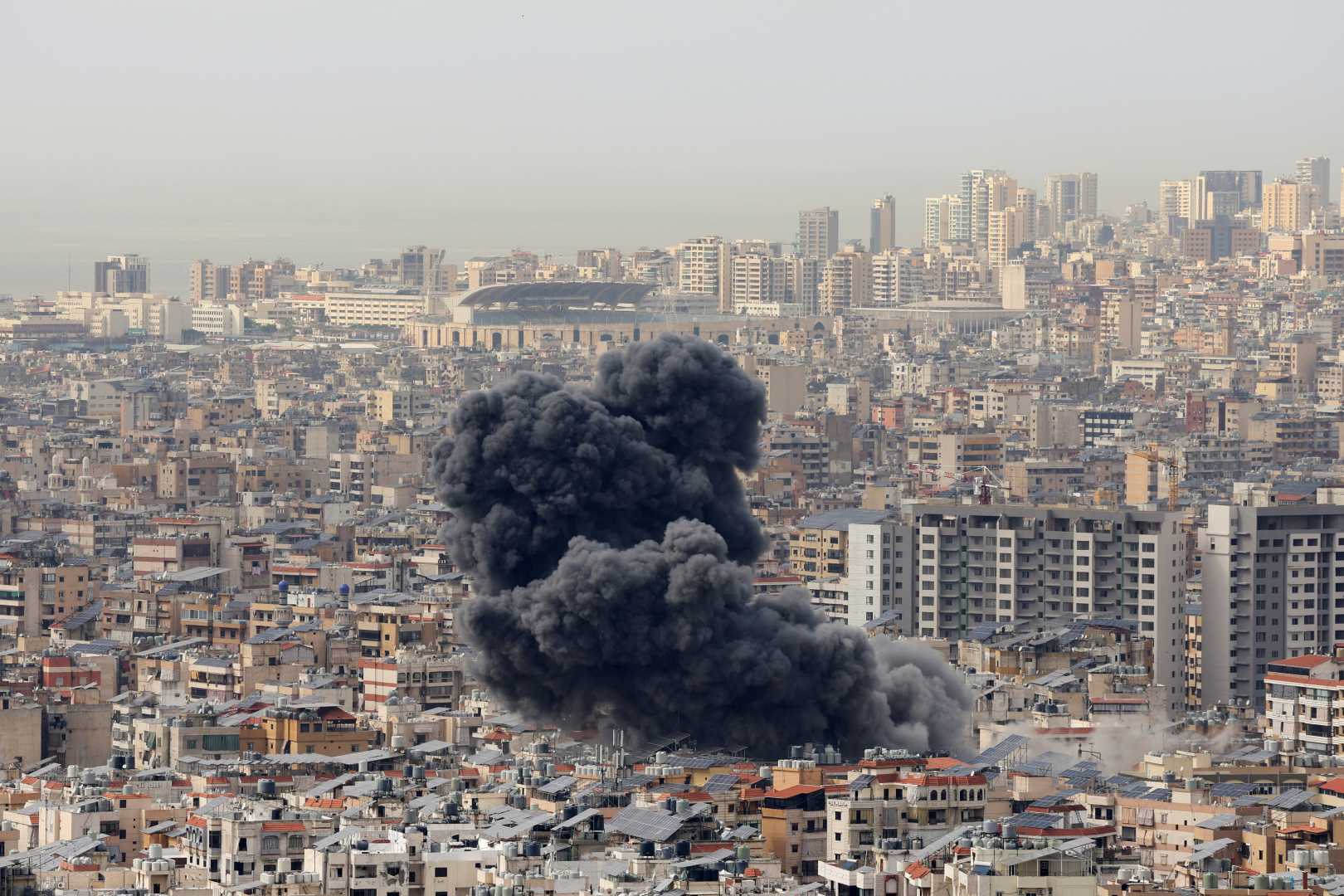World
Israel Strikes Beirut for First Time Since November Ceasefire

BEIRUT, Lebanon — In a significant escalation of hostilities, Israel launched an airstrike on the southern suburbs of Beirut on Friday, the first such attack on the Lebanese capital since a ceasefire with Hezbollah took effect last November. The strike was reportedly in retaliation for two projectiles claimed to have been fired from Lebanon into northern Israel.
The Israel Defense Forces (IDF) stated that it targeted a Hezbollah drone storage facility in Dahiyeh, a stronghold for the militant group. Israel’s military characterized its action as necessary due to Hezbollah’s practice of embedding military assets within civilian areas, a tactic they allege endangers Lebanese civilians. An IDF statement asserted, “Hezbollah systematically embeds its terrorist infrastructure amidst the Lebanese civilian population,” highlighting their concerns about civilian safety.
Prior to the airstrike, the IDF issued an urgent evacuation order, warning Lebanese residents in Dahiyeh, particularly around Hadath, to leave their homes due to the imminent strikes. “For your safety and the safety of your families, you must evacuate these buildings immediately,” the IDF alerted, indicating residents should move at least 300 meters away from the designated target areas. The alarm was particularly acute given the proximity of educational institutions within the affected zone.
As a direct result of the IDF’s actions, the Lebanese government suspended classes across schools in the affected areas, urging all students and staff to vacate immediately. Lebanon’s Health Ministry later reported that three people were killed and at least 18 others were injured, including children and women, in subsequent strikes across Southern Lebanon.
Amid escalating tensions, Prime Minister Benjamin Netanyahu asserted that Israel will continue its military actions until it receives guarantees that such attacks from Lebanon cease. “If there is no peace in Kiryat Shmona and the Galilee communities, there will be no peace in Beirut either,” he stated. This declaration underscores Israel’s unyielding stance regarding security threats emanating from across its northern borders.
Hezbollah, in response, denied any involvement in the alleged rocket attacks, claiming that the exchanges of fire only serve as a pretext for Israel to continue its aggression towards Lebanon. A senior Lebanese military official stated that they found a launch site for rockets in southern Lebanon and confirmed they are currently investigating the identities of those responsible for the attacks on Israel.
Lebanese President Joseph Aoun spoke out against Israel’s actions, branding the strikes as blatant violations of Lebanon’s sovereignty and an affront to the ceasefire agreement established in November 2024, brokered with international involvement. Aoun emphasized the expected adherence to the ceasefire by both parties, stating, “There is a ceasefire in place, and both sides are expected to respect the agreement.”
The recent escalations follow a prolonged period of violence that erupted subsequent to the Israel-Hamas conflict in October 2023, wherein thousands were killed or displaced across both territories. A surge in hostilities between Hezbollah and Israel has marked much of the last year, prompting repeated calls for international intervention and ceasefire enforcement to prevent further loss of life.
In the aftermath of the airstrikes, the international community, including the United Nations and various Western governments, have called for restraint and criticized both parties for engaging in actions that jeopardize civilian lives. The escalation heightens concerns regarding the potential for a broader regional conflict as tensions within Lebanon and between Israel continue to simmer.












